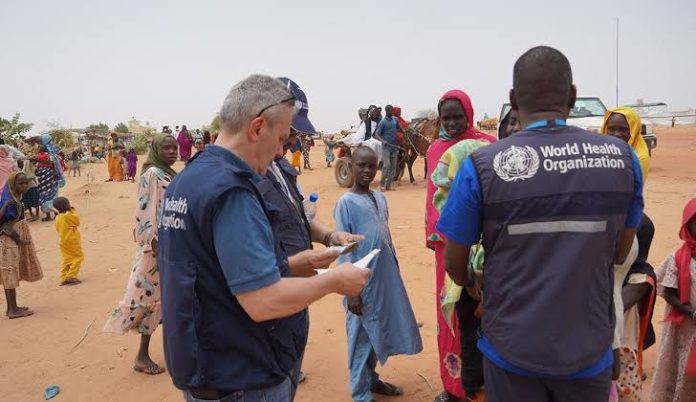Facebook Twitter (X) Instagram Somali Magazine - People's Magazine
Somalia’s health system faces immense challenges as Dr. Hanan Balkhy, WHO Regional Director for the Eastern Mediterranean, completes her first official visit.
Dr. Hanan Balkhy, WHO Regional Director for the Eastern Mediterranean, recently concluded a three-day visit to Somalia. With the country still grappling with over three decades of conflict, disease outbreaks, and extreme weather, Dr. Balkhy’s visit underscored both the severe challenges and the optimism for progress. Somalia’s leaders are aiming for transformation, and many young Somalis—who have only known a country in turmoil—are eager to contribute to a brighter future.
Dire State of Health Infrastructure and Services
In Somalia, over 40% of the population lacks access to basic health services, and the rates of preventable maternal and child mortality remain among the highest globally. Much of the country’s health infrastructure was destroyed during the civil war, leading to critical shortages of skilled health workers, particularly in rural areas. Dr. Balkhy emphasized the urgent need to rebuild health facilities and enhance the health workforce to address these severe disparities.
Escalating Health Risks Due to Climate Events
Somalia’s vulnerability to extreme weather events, such as drought and floods, has exacerbated the country’s health crisis. Although WHO and its partners helped prevent famine during the 2022–2023 drought, thousands of children lost their lives, and millions remain at risk of hunger and disease. Dr. Balkhy highlighted the importance of a coordinated response to address these ongoing public health risks and improve resilience against future crises.
Polio Eradication: A Key Priority
During her visit, Dr. Balkhy administered polio drops to a young child at De Martino Hospital in Mogadishu, reaffirming WHO’s commitment to eradicating the poliovirus, which remains a threat in Somalia. Recent efforts by the polio program have expanded vaccination campaigns in hard-to-reach areas, offering additional health services such as vitamin A supplements and deworming pills.
Somalia’s Prime Minister, Mr. Hamza Abdi Barre, has shown political support for ending the current polio outbreak by leading the newly established Immunization and Polio Eradication Task Force. Dr. Balkhy praised this initiative and expressed optimism that with Somalia’s dedication and WHO’s continued support, the country could eliminate poliovirus transmission.
Planning for Long-Term Health Sector Reform
Somalia’s health sector is undergoing significant planning as part of the National Transformation Plan 2025–2029. Dr. Balkhy observed that Somalia’s health priorities align well with WHO’s regional initiatives, particularly in expanding specialized health services and ensuring access to safe, effective medicines. She stressed the importance of enhancing governance, regulatory standards, and accreditation to maintain high-quality health services across the country.
Multisectoral Collaboration for Sustainable Health
Dr. Balkhy urged a multisectoral approach, noting that health risks are influenced by sectors beyond health alone, including food, agriculture, water, and sanitation. In discussions with UN representatives in Mogadishu, she emphasized the importance of aligning efforts with the new UN Cooperation Framework for Somalia to tackle shared challenges such as maternal mortality and food insecurity.
WHO’s Commitment to Health Equity and Access
WHO’s decentralized presence in Somalia plays a crucial role in expanding health services to remote areas and vulnerable populations. Dr. Balkhy reaffirmed WHO’s commitment to work alongside Somalia to ensure that essential health services reach those most in need. She called for continued international support to strengthen Somalia’s health system and improve public health resilience.
Moving Forward: International Support Essential
The evolving situation in Somalia requires an unwavering commitment from the international community. Dr. Balkhy stressed that sustained support is essential to protect public health gains and build a resilient health system that can serve all Somalis.

